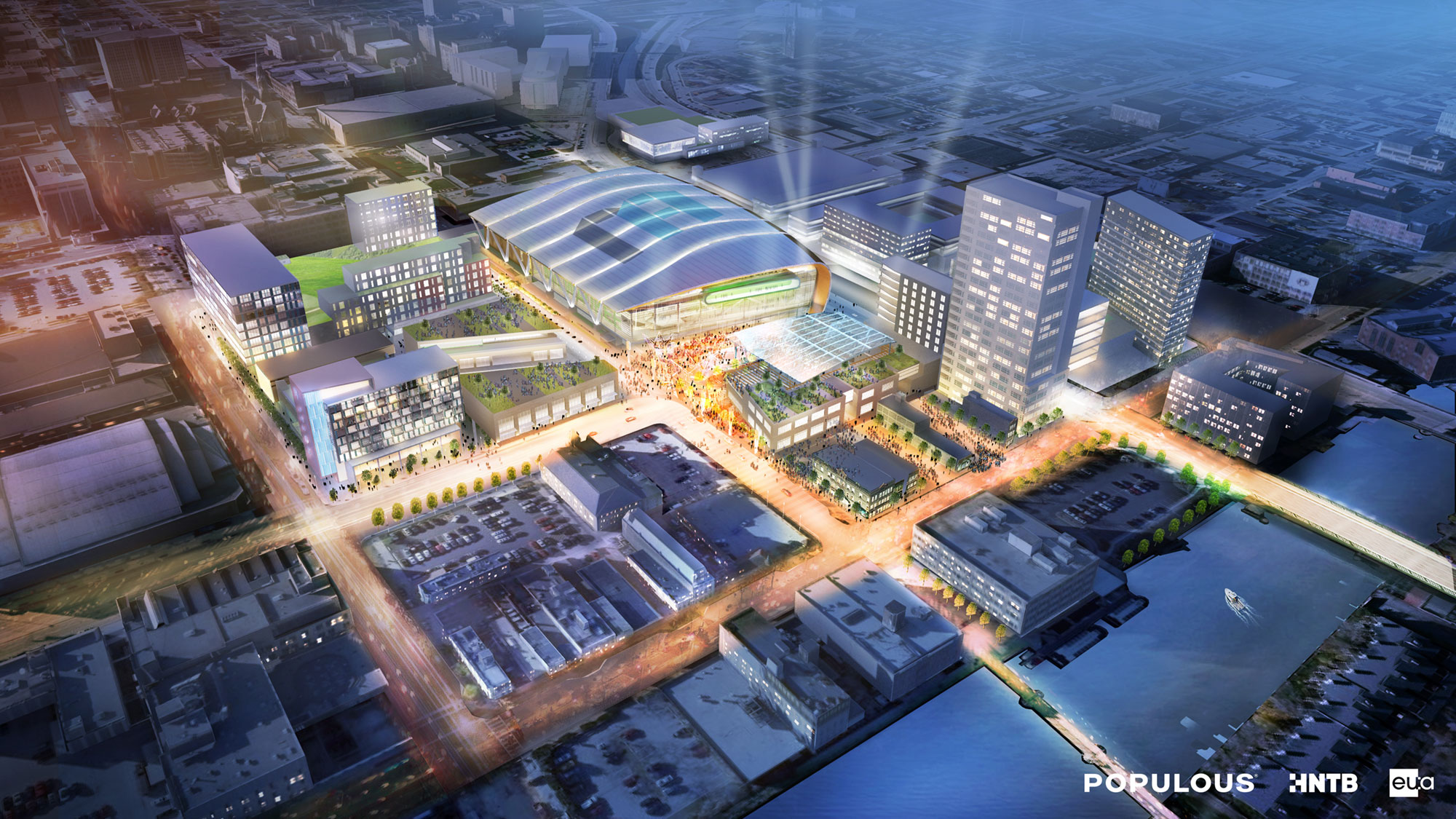Republican legislative leaders say financing for a new Milwaukee Bucks arena will be a hard sell even within their caucus, as business groups and analysts step up their support of the plan backed by Gov. Scott Walker.
Arena financing would be tough under normal circumstances; that’s just the way of things in the United States. But throw in the state’s toxic political environment, the unfortunate timing of announcing $250 million in University of Wisconsin cuts the same week the $250 million arena-financing plan was unveiled (which, of course, opened the door for critics to link the two) and Walker’s plummeting approval ratings, and the merits of public spending on a new Milwaukee Bucks arena were quickly ignored. Assembly Speaker Robin Vos acknowledged as much in a weekend interview on a local public-affairs show. From the Capital Times:
“It does have political prices, and that’s where I want to be totally up front,” Vos said. “We’ve been up front with our caucus. That’s why the issue really isn’t about the Bucks, it’s not about Milwaukee. It’s about the state of Wisconsin’s budget.
“We’re not raising taxes at the state level, so we have to look for every possible economic opportunity to grow the pie that we already have. We know that we have $6.5 million in revenue right now today if the Bucks stay. That number is guaranteed to increase over time because of new player salaries, contracts. So why wouldn’t we want to keep more revenue in the state for a small investment, which is really what it is.”
The new Milwaukee Bucks arena plan would have the state directly borrowing $55 million toward the arena construction, with the Wisconsin Center District — which runs the downtown convention center and Milwaukee Theatre and would add this arena as well as oversight of BMO Harris Bradley Center and Milwaukee Center for Performing Arts to its portfolio – would float $93 million in bonds. Uncollected debt on the Milwaukee County books would go toward the project, while the city would create a TIF district and build a parking ramp, putting Milwaukee on the hook for some $47 million. The total public money would be capped at $250 million, and the Bucks would pay for maintenance and operating costs, using proceeds of a potential naming-rights deal.
So this is not $250 million coming from state taxpayers; just $55 million out of a total $250 million package. It would also be a key investment in the city’s fallow Park East district: the area in downtown Milwaukee primed for $500 million more in potential investments if the arena happens. And that’s the point of Milwaukee Magazine’s Dan Shafer, who has covered the arena debate on a very local level:
Make no mistake, the arena is not the solution to all of Milwaukee’s problems — far from it. But there is no other project of this scale capable of engaging the city and its diverse population the way this one could.
Buzzwords like “catalytic” and “transformational” have been tossed around so many times in recent months they’ve nearly lost their meaning. But a shape-shifting upheaval the likes of which this city hasn’t seen in decades is precisely what’s at stake. There’s opportunity to be seized, and that opportunity is worth the cost.
Build it.
Meanwhile, business leaders gathered at the Capitol to urge passage of the Bucks financing deal in this year’s budget:
“We need the jobs, the tax revenue and economic vitality this project will create,” said Ralph Hollmon, president of the Milwaukee Urban League. “We should view it as an investment in our future.”
Lawmakers have been talking privately about whether there’s support to put the financing plan in the state budget or break it out separately. The $70 billion state budget is expected to pass later this month, and some backers of the Bucks deal worry that breaking it out into a separate bill could delay action for months or longer, putting the deal in jeopardy.
“Our overriding preference is to get this done,” said Steve Baas, lobbyist for the Metropolitan Milwaukee Association of Commerce. “There are certainly land mines that go with pulling it from the budget that make it more difficult.”
There is a deadline of sorts. When Wesley Edens and Mark Lasry bought the Bucks from Herb Kohl, they did so with a provision inserted by the NBA: the league has the right to buy the franchise back for $575 million if there is not a new arena by 2017. If the Bucks leave, that takes at least $10 million a year in taxes annually paid by the team out of the local economy.


